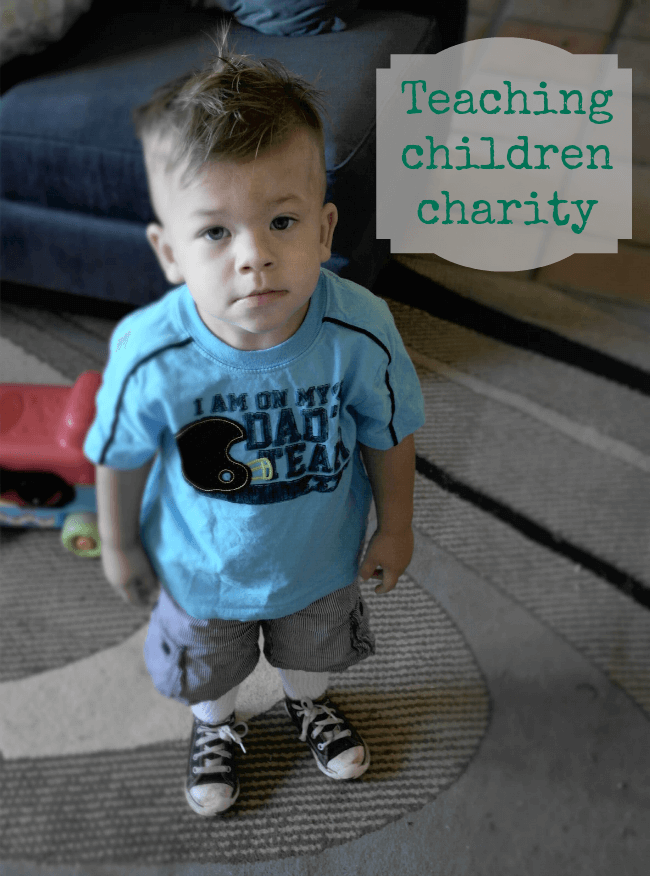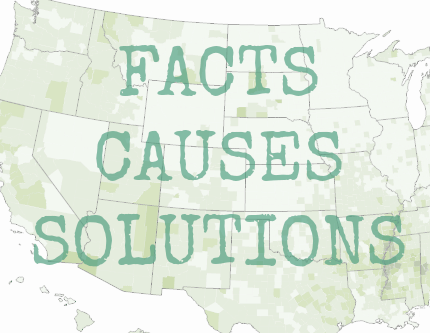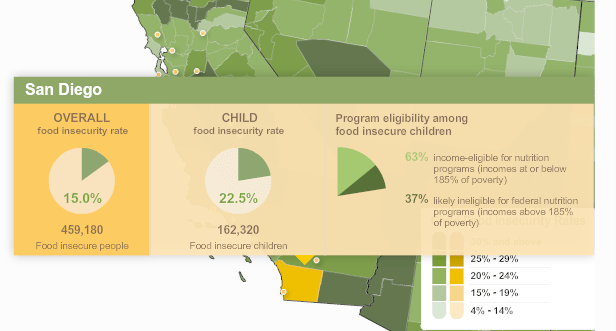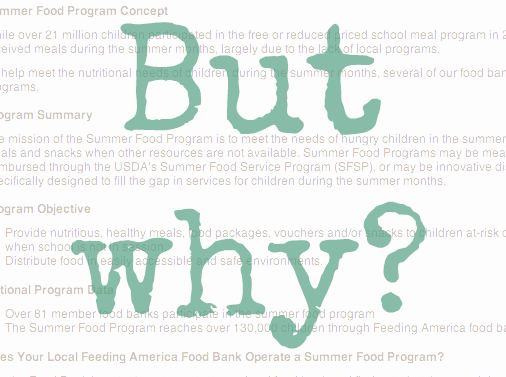I've written before about how I take my young kids to the food bank once in a while to give back to the community. Up until recently it's been largely an act of habit. I demonstrate to them that this is just what we do. It's an important part of our routine. I figured they'd come to fully understand when they're older. And then, Some Boy in his tiny little toddler voice said something that put it all into perspective for me.

“But why?”
This has been his favorite phrase lately. He utters it day and night about everything from his chicken nugget lunch to the clean sheets at bedtime. I do my best to offer a running dialogue of what we're doing, and I avoid the cliche “Because I said so,” as much as possible. But when I strapped him into his car seat and explained that we were going to the food bank again, this inquiry caught me off-guard.
“Because, buddy, other kids aren't as lucky as you. They don't have enough food. We need to help them.”
How do you explain hunger to a child who has never gone without? How do you start teaching children charity?
I realized that what I'm imparting to him now is more than routine. It's compassion.
Teaching Children Charity
I used to teach third grade. I'm no stranger to the logic of children – I'm just not used to it from MY little ones. But time speeds on. They grow up, they understand, the comprehend and eventually they become functioning members of society who have the capacity to start life-changing movements. Our children's “But why?” could be just the beginning, and it's up to us to give them an answer.
Make it relatable
The easiest way to help children relate to global issues is to bring it down to a micro-level that they can wrap their heads around. I looked up the statistics in my area and found that an astonishing 23% of children in San Diego are food insecure. That's almost 1 in 4, which comes out to about 6 children in the average elementary school class.
A handful of people in your kid's class may not get dinner every night.
Explain how this happens to people in real terms
A number like that hits you in the gut. It gets your attention. Once they have an understanding of the issue on a level that makes sense to them, help your child understand the reasoning behind the problem. Child hunger doesn't just happen.
Families are already living near the edge when someone gets sick. A car breaks down, jobs get lost. Tradeoffs are made. What may be small stumbling blocks to you and I are life-altering events for others.
Act on what you're learned
The most important message to get across when teaching children charity is that their actions make a difference. When children view issues on a community level, their personal impact seems that much more important. Tell them how they can help BIG movements with SIMPLE steps. Food bank visits, hunger drives, awareness programs. Even little children can get involved with visits to the food bank or volunteering at a homeless shelter.
Do you have any special tips for teaching children charity?



What a great message! I think it’s important to teach kids about charity at a young age so they get into the habit of learning more and reaching out to others as they get older. I watched the video you posted, such a strong message.
It is so important to teach your children to give back. So glad this is message is getting across.
It is so important to teach our kids to give back at a young age. I think it’s awesome that you have been taking your oldest to the food bank, and compassion will get him far.
We do this at Christmas time and donate toys to boys and girls who don’t have any! A great lesson!
That’s great. I try to do the same with my son, especially with all the toys we have at holiday time.
Charity is definitely something we all need to teach our kids. Children are naturally giving and want to help others, so it is good to take advantage of that while they are young and encourage that character trait. Thanks for the tips!